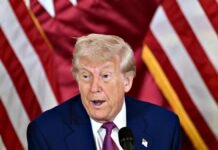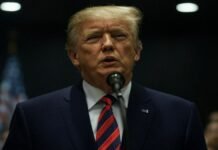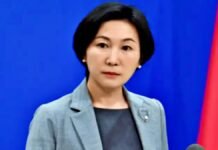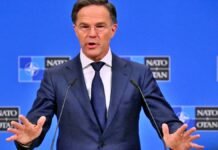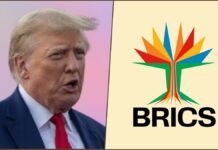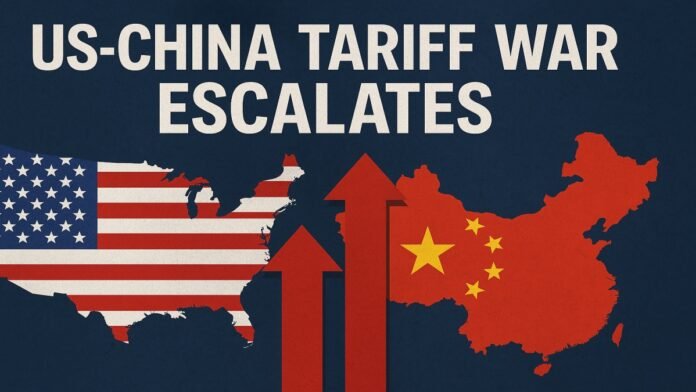
Key Points
- Trump’s Tariff Reversal: President Donald Trump announced a 90-day suspension of tariffs for most trading partners, excluding China, where tariffs were raised to 125%.
- Global Market Impact: Stock markets surged globally following the tariff pause, with major indices in the U.S. and Europe posting historic gains.
- China-U.S. Trade War Escalates: The tit-for-tat tariff war between the two largest economies continues to disrupt global trade and economic stability.
- WTO Warning: WTO Director-General Ngozi Okonjo-Iweala cautioned that escalating trade tensions could slash global GDP by up to 7% and severely impact least-developed nations.
- Trade Negotiations: The U.S. is reviewing tariff proposals from 15 countries, signaling potential breakthroughs in international trade agreements.
Washington D.C: In a surprising move on April 9, 2025, U.S. President Donald Trump announced a 90-day suspension of tariffs for most trading partners, marking a temporary reprieve in his aggressive trade strategy. Dubbed “Liberation Day” tariffs when first introduced on April 2, Trump’s policy aimed to correct what he described as decades of unfair trade practices. However, China was notably excluded from this suspension, with tariffs on Chinese imports raised from 104% to an unprecedented 125%.
The decision has sparked mixed reactions globally. While the temporary pause has alleviated some market anxieties, the escalating trade war with China remains a significant concern.
Global Stock Markets Surge
The announcement triggered a remarkable rally across global stock markets:
- U.S. Markets: The Dow Jones Industrial Average soared by over 2,600 points (+7%), while the Nasdaq and S&P 500 posted gains of 10.4% and 8.2%, respectively.
- European Shares: European indices experienced their best day in three years, with sectors like banking (+10%) and energy (+9%) leading the charge.
- Asian Markets: While Japan’s Nikkei struggled earlier in the week, Hong Kong’s Hang Seng index saw modest recovery following Trump’s tariff pause.
This surge reflects investor optimism about reduced trade tensions with countries outside China but underscores ongoing volatility due to uncertainty surrounding U.S.-China relations.
China-U.S. Trade War Intensifies
The exclusion of China from the tariff suspension has deepened the trade conflict between the two superpowers:
- U.S. Tariffs: Trump raised tariffs on Chinese imports to 125%, citing Beijing’s lack of respect for global markets.
- China’s Retaliation: In response, China imposed an 84% tariff on American goods and filed a complaint with the World Trade Organization (WTO), calling U.S. measures “reckless” and harmful to global trade.
With bilateral trade accounting for roughly 3% of global commerce, this tit-for-tat approach risks severe economic repercussions worldwide.
WTO Warns of Global Economic Fallout
World Trade Organization Director-General Ngozi Okonjo-Iweala issued a stark warning about the broader implications of escalating trade tensions:
- GDP Impact: The ongoing tariff war could slash global GDP by up to 7% in the long term.
- Trade Collapse: Bilateral merchandise trade between the U.S. and China could plummet by as much as 80%, disrupting supply chains and causing widespread instability.
- Developing Nations at Risk: Least-developed countries are expected to bear the brunt of these disruptions due to their reliance on international trade.
Okonjo-Iweala emphasized the need for cooperative dialogue through WTO mechanisms to prevent further fragmentation of global trade.
Breakthroughs in Trade Negotiations
Amidst this turmoil, White House economic advisor Kevin Hassett revealed that the U.S. is reviewing tariff agreement proposals from 15 countries:
- Several proposals are reportedly close to finalization, signaling potential progress in international trade relations.
- Hassett highlighted that reciprocal agreements could pave the way for reduced tariffs if trading partners lower their own barriers.
This development offers hope for stabilizing global commerce outside the U.S.-China conflict.
President Trump’s tariff reversal has provided temporary relief to global markets but failed to address escalating tensions with China. As stock markets rally and negotiations advance with other nations, experts warn that prolonged conflict between Washington and Beijing could have devastating consequences for global economic stability. With warnings from the WTO about a potential 7% drop in global GDP, resolving this high-stakes trade war remains critical for safeguarding international growth and cooperation.







